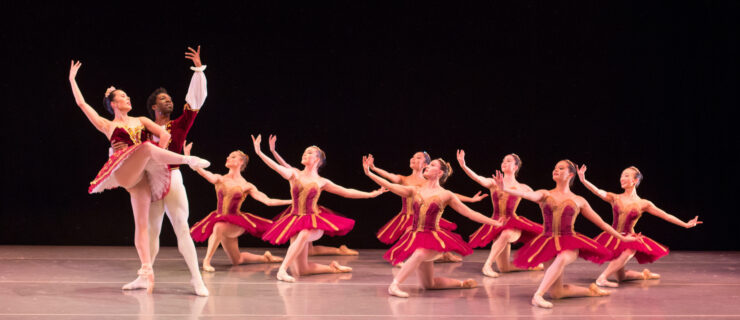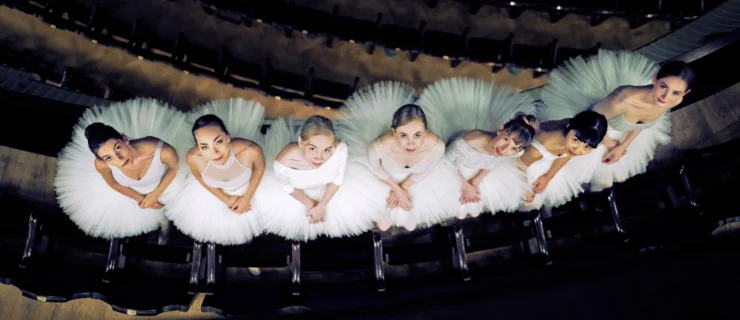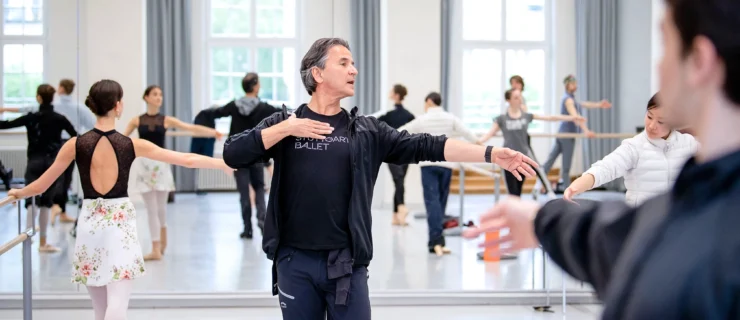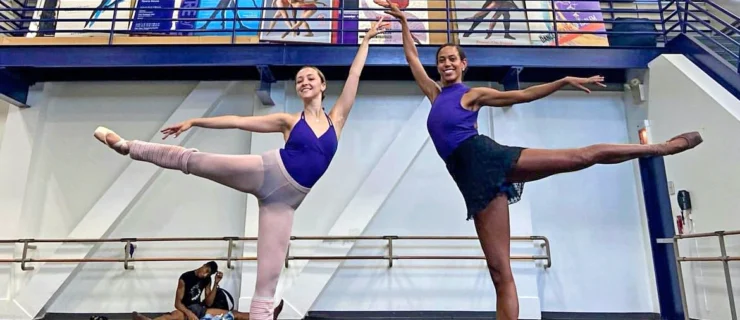The Ones Not Chosen
As a student, it’s easy to see signing your first apprenticeship contract as the happy ending of the story. After all, you’ve made it: You have become a professional dancer.
But not everyone proceeds smoothly upwards through the ranks. The truth is that many dancers derail before they even secure a place in the corps. As an apprentice, you’ve gone from being top dog at your studio to the most expendable member of a large company, at the whim of budget cuts, injuries, poor timing or the preferences of a fickle director.
Pointe interviewed three dancers who now have dream-worthy careers, yet all of them lost that first contract. Each one rallied from the disappointment of not being chosen, and grew from that disappointment into her full potential.
Misa Kuranaga, principal dancer at Boston Ballet
Apprenticeship: San Francisco Ballet
On paper, Misa Kuranaga’s rise to principal dancer with the prestigious Boston Ballet is a fairytale. In reality, her path was neither direct nor easy.
After her 2001 win at the Prix de Lausanne, Kuranaga boarded a plane from her native Japan to accept her prize, an apprenticeship with the San Francisco Ballet. She landed in another world. “I didn’t know anything about Balanchine technique,” says Kuranaga. “It was a totally different style. I was in shock.” She had thought she was done with training; she hadn’t anticipated, and therefore was less open to, the changes required of her. Her year as an apprentice was a constant struggle to understand—she was simultaneously learning a new language, culture and balletic style—and she finished it without a contract.
After years of winning gold medals and what she calls a “red carpet” experience in Japan, Kuranaga faced a wall for the first time. “It was the worst depression I’d ever had,” she remembers. Determined to move on, she auditioned for companies all over the United States, to no avail. “The only thing I could think to do was go to the School of American Ballet and immerse myself in the Balanchine style,” she says.
So she enrolled as a student at SAB. It was a decision that many professional dancers would be too proud to make, but it was the right choice for her: She saw a great improvement in her turnout and petit allégro. “SAB made me what I am now,” says Kuranaga, who credits her successful education there to the efforts of faculty members and former New York City Ballet dancers Suki Schorer and Susan Pilarre.
Her year at SAB yielded a bountiful audition season, with offers from companies in Europe and the US—including one from Boston Ballet, which she readily accepted. She speedily rose to the rank of principal and has enjoyed the company’s diverse and challenging repertoire. But she’s ever mindful of the lesson she learned in San Francisco. “Be open to what’s around you,” she says. “If I have one regret, that’s it.”
Holly Lynn Fusco, corps member at Pennsylvania Ballet
Apprenticeship: Miami City Ballet
In 2003, then-17-year-old Holly Lynn Fusco left her home in Michigan and went to study at Miami City Ballet School. She began performing with the company almost immediately, and it seemed like a natural progression when she was offered a student apprenticeship three years later.
Then it all came to a screeching halt. “When I was let go, I was in full costume and makeup for Symphony in Three Movements. I was told maybe half an hour before the show,” Fusco recalls. “I still had to go out there and dance.” Her tears resulted in three more makeup applications before the curtain rose. But after the performance, she only allowed herself to wallow in the disappointment for a day or two. “I knew I was a good dancer,” she says. “You need a mental switch when something like that happens to you. You can’t be the victim.”
Two weeks later, she auditioned for Pennsylvania Ballet, and after several months of anxious waiting, she was offered an apprenticeship.
During that apprenticeship, choreographer Annabelle Lopez Ochoa set a piece on PAB, and Fusco had a breakthrough: Ochoa selected her for a solo in Requiem for a Rose, which Fusco sees as the real beginning of her career. “I was barefoot with a rose in my mouth for two minutes, alone onstage,” she says. “It was so outside of my box. Nothing will ever match the feeling I had after that first show.”
Now in her second season as a corps member, Fusco continues to enjoy the diversity of the PAB repertoire. Though she was never told why she was let go from Miami City Ballet, she has resisted bitterness and is still “continually grateful” for the training she received there.
Elizabeth Hansen, company member at the Joffrey Ballet
Apprenticeship: Pittsburgh Ballet Theatre
Elizabeth Hansen was over the moon when she signed her apprenticeship contract at Pittsburgh Ballet Theatre. “I loved the city and I loved the company,” she recalls. Determined to impress, she didn’t take any time off during the summer before her apprenticeship began. As a result, a few weeks into the season, she developed a stress fracture that took her out for two months. “It taught me that I needed to give my body time to rest,” she says. “It was a big lesson to learn at the very beginning of my career. I was devastated.”
Hansen recovered well from her injury, but when it came time for her contract to be renewed, the artistic director explained to her that there wasn’t room in the budget for her to come back. “That’s what made it worse: It wasn’t because I was bad or hadn’t worked hard,” she says. “I was panicked.” Hansen moved back to her parent’s home in Cheyney, PA, discouraged—but not defeated.
In the three years that followed, she worked a string of part-time jobs to fund her tireless audition process. She danced with the Brandywine Ballet Theatre, a regional company in West Chester, PA, where she had the opportunity to perform exciting roles. “I didn’t even consider giving up. It didn’t occur to me,” she says.
Hansen auditioned for the Joffrey Ballet five times during that period. Eventually her persistence paid off: After audition number five, she was offered a contract. Now in her fifth season with the company, Hansen knows she’s found her home. “Every single dancer here has a special quality and her own personality,” she says. “These are the dancers I want to work with, and this is the rep I want to do.”






